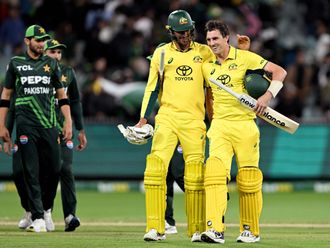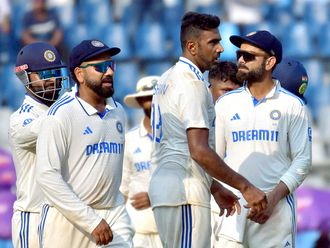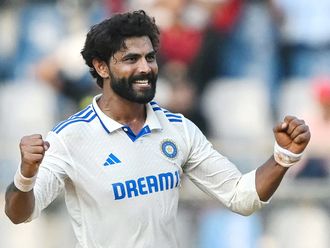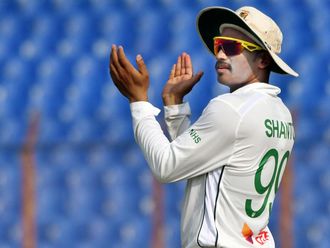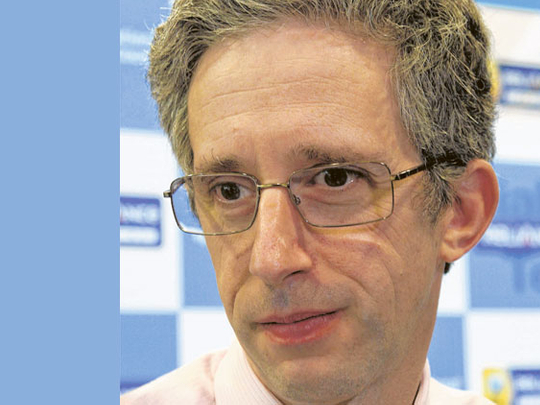
Dubai Today every cricket-playing nation in the world is concerned about their ranking in world cricket — be it Test cricket, one-dayers or Twenty20. Every match is taken seriously to ensure that they climb up the ranking. The man who brought about such a huge interest in cricket is David Kendix. Through intense research he created the International Cricket Council (ICC) ranking system which has now won laurels around the world.
So impressed was the ICC by his method of assessing the performance of each nation that they asked Kendix to create the ranking for Twenty20 cricket too.
In an exclusive interview to Gulf News at the ICC Headquarters, Kendix spoke about how he created the ranking system.
GULF NEWS: How does it feel to be the creator of a ranking system that is being keenly followed by all the cricketing nations?
DAVID KENDIX: I was originally contacted by the ICC way back in 2002 when they wanted to devise a set of rankings for one-day cricket. I had helped out the England Cricket Board for some years on various issues and they suggested that I might be able to help ICC with the rankings.
So I did the ICC ODI rankings in 2002 then the Test rankings the following year. The two have operated fairly well for the last eight to nine years. Then the ICC came back to me and asked me if I could complete the trilogy and produce a set of Twenty20 ranking. So I have done that following a similar format of the other two. Now they are happy that all three versions of the game have rankings associated with them.
How did you get interested in creating such a ranking system? Are you a mathematician by profession?
My academic background is of a mathematician and statistician but above all I am a keen cricket lover. It is through my love for cricket and my knowledge of mathematics that I have created this ranking. By employment I am an actuary. (An actuary is a statistician who calculates insurance premiums, risks, dividends, and annuity rates).
So what is the main criterion that you look into while producing the ranking?
The main requirement is that the rankings should broadly look sensible. People should not look at it and say that it cannot make any sense. From the time these rankings were first launched in 2002, I have experienced that the rankings did look sensible. There hasn't been an occasion where people had to say why this team is on the top and that they don't deserve to be there. The real judge is when public opinion says it looks sensible then for me I am doing my job.
When the rankings have fluctuated you have come in for huge criticism. How do you take it?
The ranking system was carefully reviewed by the ICC before the launch. All three versions are regularly reviewed. In fact, a few months ago I went to the ICC Executive Board and summarised the common working of the ranking. They were happy with the procedures that are being followed.
I take comfort from the fact that they are mathematically and statistically robust. They work in the way the ICC wants them to work. People have criticisms of them and that is fine with me. There are criticisms because people would like to measure different things in a different way but I am basically following the brief from the ICC that they wanted rankings which had certain characteristics and I produced it for them. So I am comfortable in my mind that I have produced a set of ranking to the needs of the ICC. Of course people will come with different opinions and say that it could be done in a different way. Then there is no one right answer.
Did Australia's slipping down from the top of the ranking make your work harder or easier?
Australia slipping from the top of Test ranking has made it very busy for me. If you have one team which is well clear on top all the time you don't need ranking to tell you that.
Nobody needed rankings to tell you that Australia was the best team in the world at that time. Once you have some competition for the top place with two or three teams close together in contention for the top place then it suddenly becomes interesting. So after having a period of six to seven years in which no one was really interested in the Test ranking suddenly there is enormous interest. India and England were recently playing for the right to be No 1. Australia losing the top slot and South Africa coming along strongly have made people start taking notice of what could happen now and how it really works and interest has gone up a lot.
Don't you think the ranking has also boosted competition?
I would like to think that it has added context to the match and added more seriousness to a match. Teams now know that if they have already won a series then they still should play hard. For example, take the recent one-day series between India and England.
If before the ranking came around after India had won the series 3-0, the two remaining matches of the series would not have been of any importance. Now India knows that if India can win the fourth and fifth it can add to their ranking. The fourth and fifth match becomes as important as the first, second and third. They know it will help them close the gap on the top of the table with Australia. So every match counts and it is not a dead rubber because every match helps them move closer to the No 1 slot.
You must be very happy that every nation now aims for the No 1 rank now?
I am very happy that it is being recognised and that is something worth looking at and worth recording.
The ICC wanted it and also the sponsors Reliance wanted it. My perspective is in doing a job which people will be interested in and talk about it.


